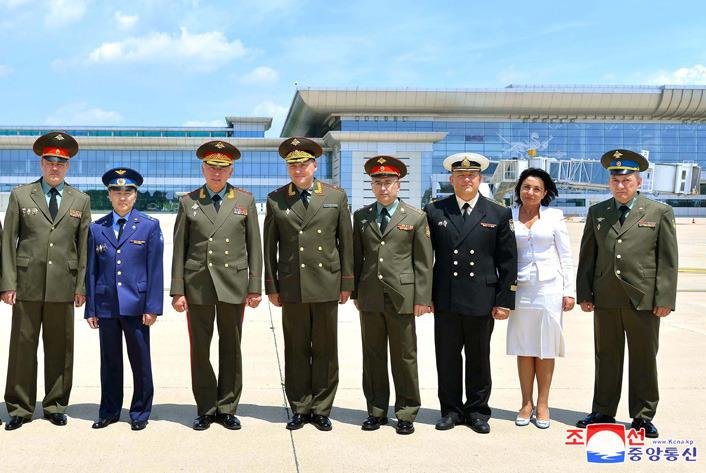A Russian military delegation arrived in Pyongyang on Wednesday for discussions with North Korea. Photo by KCNA
July 3 (UPI) -- North Korea welcomed a Russian delegation on Wednesday and the two sides agreed to expand military cooperation, according to Russian media.
Russia's deputy defense minister Alexander Fomin met with his North Korea counterpart, Kim Hyong Ryong, in Pyongyang and discussed common goals of the two countries, Tass reported.
"The main objective of the visit is to establish the specific details of military cooperation between Russia and North Korea," Fomin said.
Ahead of the visit, Russia's defense ministry issued a statement.
"During the upcoming talks, the sides plan to discuss the situation in Northeast Asia and on the Korean Peninsula, the conditions and prospects of Russian-North Korean cooperation in the military sphere, as well as relevant issues on the international and regional security agenda," the ministry had said.
In North Korea, Fomin reportedly explained Russia's military operations in Syria. The Russian official said Moscow was deploying in Syria for reasons of "humanitarian relief" and to fight "international terrorist organizations" in the Middle East, according to Tass.
Fomin also said military cooperation between Russia and North Korea had become more active following the summit between Russian President Vladimir Putin and Kim Jong Un in April.
The Russian visit to Pyongyang comes shortly after Kim's surprise summit with President Donald Trump at the Korean demilitarized zone.
Following the third U.S.-North Korea summit, U.S. special envoy on North Korea Steve Biegun told reporters in an off-the-record briefing the Trump administration wants a "complete freeze" of North Korea's nuclear weapons program, Axios reported.
The statement signals U.S. flexibility but does not mean Washington is abandoning the long-term goal of "complete denuclearization," according to the report.
The Trump administration wants a "a freeze and an idea of an end state, and then within that...a discussion of a roadmap," Biegun reportedly said.
Biegun has denied reports the administration could tacitly accept Pyongyang as a nuclear power, after The New York Times reported Trump officials are abandoning complete denuclearization, according to Axios.















